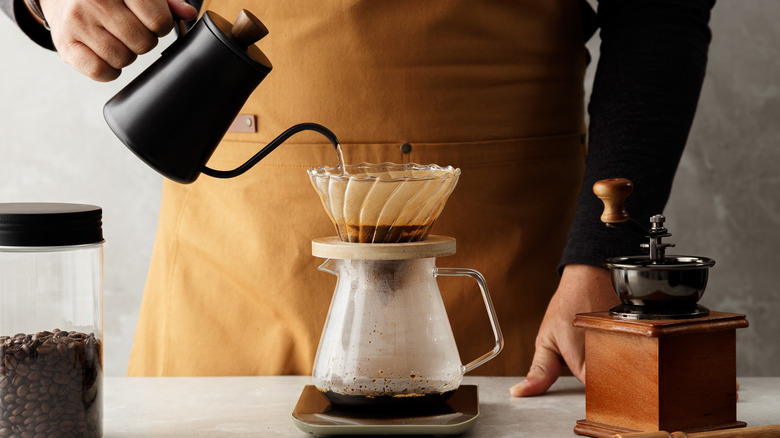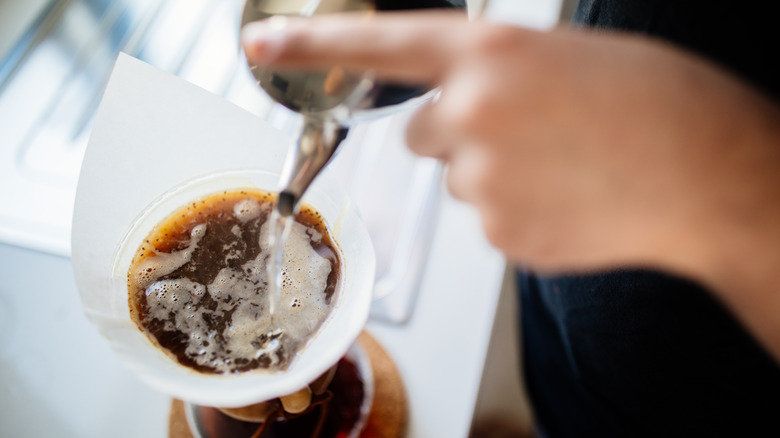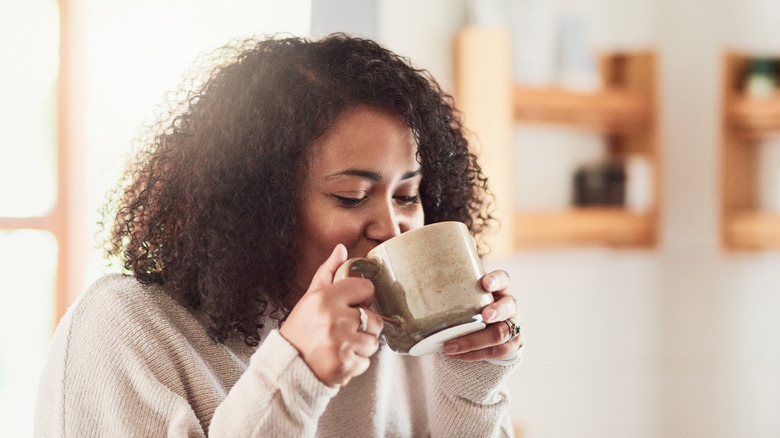How Tap Water Affects Your Home-Brewed Coffee
Ah, the aromatic smell of freshly brewed coffee in the morning. It doesn't get much better than that. For many people, however, home-brewed coffee just doesn't taste the same as it does when it's made at a local café, even if you're using the same beans. As it turns out, the difference might be in the water. In fact, a cup of coffee is almost 99% water, so if your water isn't great, your coffee isn't going to be great, either.
Tap water can affect your home-brewed coffee because of a variety of factors, including how hard or soft your water is, the alkalinity of your water, how long the water has been sitting out, and the overall quality of the water. The temperature of the water plays a role, too. The ideal water temperature for coffee is around 200 degrees Fahrenheit. Making sure your water meets the optimal standards can improve your home brew and save you some costly trips to the coffee shop.
The water profile for the perfect cup of coffee
The Specialty Coffee Association has put forth a set of standards for the best water to use to brew coffee. According to the association, using water that meets these standards results in superior extraction of coffee solids. To meet the standards, your water should be odorless and clear. It should also be free from chlorine, and it should be mildly acidic. The Specialty Coffee Association claims that the calcium hardness should be between 50 and 175 parts per million, and the alkalinity should be between 40 and 70 parts per million, but as close to 40 as possible. If your water has a higher pH level and is alkaline, your coffee can taste bitter. Ideally, your coffee should rank between 6 and 8 on the pH scale.
Having adequate levels of minerals, such as magnesium and appropriate water softness, can also make your coffee taste better. These minerals can help bring out the flavor, and water with low mineral levels might leave your cup of joe tasting less flavorful. Minerals can also help contribute to the aroma of your coffee. Since our sense of smell actually helps us taste food and drinks, the aroma is an important component of the overall taste. Having one or two of the optimal elements above or below the recommended levels probably won't ruin your brew, but you might be surprised at how much better your coffee tastes if you make adjustments to your water.
How to get the best water
The first step to take to make sure you're using the best water for your coffee is to check the makeup of your water. You can use the Environmental Working Group's tap water database to learn about contaminants in your water, and you can also Google your local water authority to find out more information on water softness and overall quality. If you find that your water is too hard, investing in a water softener can be helpful (and it might make your baked goods taste better, too). Water filters can also help remove contaminants such as chlorine.
Another way to improve the quality of your water is to use it immediately after you get it from the tap. This means that you might not get as good of a brew if you leave your water in a holding tank, or if you fill up your pot before bed and set it to brew in the morning. As water sits, carbon dioxide starts to interact with that water, and this can reduce the pH and affect the taste. Additionally, you should make sure your coffee machine or kettle is capable of heating to 200 degrees Fahrenheit. While you may not be able to meet every standard of the perfect coffee water, the more you can meet, the better your brew will taste.


